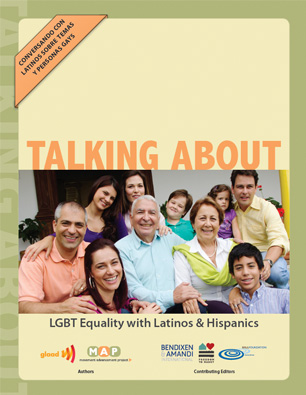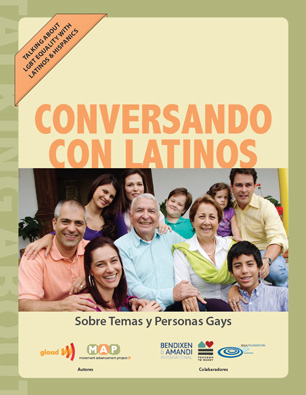The Bottom Line
Latinos and Hispanics are solid supporters of fair and equal treatment for LGBT people. Talking About LGBT Equality with Latinos & Hispanics (which also includes Conversando con latinos sobre temas y personas gays), focuses on four key shared values - family, respect, faith, and opposition to discrimination - that form the foundation of effective conversations with Latino audiences. The guide also provides approaches for discussions that build support for marriage: a focus on shared values of family and fairness, and the importance of illustrating the harms of denying marriage to gay couples.
Talking About LGBT Equality with Latinos & HispanicsDownload
Recommended citation:
Movement Advancement Project and GLAAD. September 2011. "Talking About LGBT Equality with Latinos & Hispanics." MAP's
Talking About LGBT Issues Series.
https://www.lgbtmap.org/talking-about-lgbt-equality-with-latinos-and-hispanics (date of access).
Conversando con latinos sobre temas y personas gays
El apoyo de los latinos e hispanos a que se les dé un trato justo e igualitario a las personas LGBT es sólido. Conversando con latinos sobre temas y personas gays (que también incluye Talking About LGBT Equality with Latinos & Hispanics), se enfoca en cuatro valores fundamentales—familia, respeto, fe, y rechazo a la discriminación—que sirven como punto de partida para conversaciones efectivas con el público latino. La guía también brinda opciones de acercamiento para entablar discusiones que fortalezcan el apoyo para el matrimonio: un enfoque en los valores compartidos de familia y justicia, y un enfoque en ejemplos del daño que causa negarle el matrimonio a parejas gays.
Conversando con latinos sobre temas y personas gaysDownload



